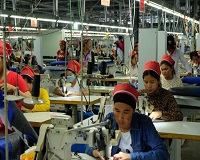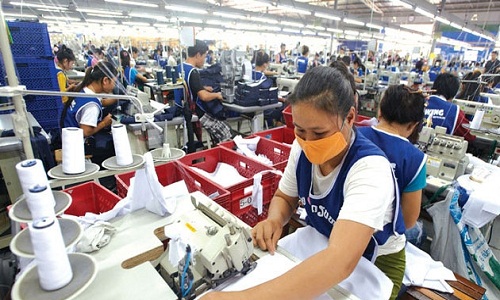"A German court case, which implicated local discount clothing manufacturer KiK for a fire at its Ali Enterprises textile factory in Karachi in 2012, raised a pertinent question: whether corporations should be held accountable for the working conditions of their suppliers abroad. The global fast fashion industry, primarily staffed by impoverished women-especially in Asia, is often accused for the exploitative working conditions in its factories. Workers in these units are highly underpaid and have fewer rights. They are highly discriminated against by their male counterparts and often sexually harassed."
 A German court case, which implicated local discount clothing manufacturer KiK for a fire at its Ali Enterprises textile factory in Karachi in 2012, raised a pertinent question: whether corporations should be held accountable for the working conditions of their suppliers abroad. The global fast fashion industry, primarily staffed by impoverished women-especially in Asia, is often accused for the exploitative working conditions in its factories. Workers in these units are highly underpaid and have fewer rights. They are highly discriminated against by their male counterparts and often sexually harassed.
A German court case, which implicated local discount clothing manufacturer KiK for a fire at its Ali Enterprises textile factory in Karachi in 2012, raised a pertinent question: whether corporations should be held accountable for the working conditions of their suppliers abroad. The global fast fashion industry, primarily staffed by impoverished women-especially in Asia, is often accused for the exploitative working conditions in its factories. Workers in these units are highly underpaid and have fewer rights. They are highly discriminated against by their male counterparts and often sexually harassed.
Increasing minimum wages has little effect
The increase in minimum wages by Bangladeshi government from €60 to €85 (per month) in December, has had little effect as women still have to work overtime to survive. The factories are largely unorganised and if women workers try to organise themselves in trade unions, they are threatened by the management and asked to leave the factory. The industry hires women as they are docile and normally not a part of any trade unions. Their traditional upbringing also does not allow them to be treated as human beings. This makes them a soft target for factory owners who frequent mistreat them.
Not sufficient job opportunities available
Also, other industries do not offer many work opportunities for women. A textile job proves to be much better than stone cutting or working as a housemaid where the danger of being harassed by men is rampant. In China, many women have quit the textile industry and entered into the electronics industry which pays them better wages.
housemaid where the danger of being harassed by men is rampant. In China, many women have quit the textile industry and entered into the electronics industry which pays them better wages.
In the case of the KiK incident, the company should be held responsible as it was more or less the only buyer; having 80 per cent of the orders. Normally, in cases of human rights violations, the guilty is tried in the country where the incident happens. However, in this case, the German court has sought the Pakistani law to determine their responsibility in the incident. This indicates the lack of awareness in the industry regarding ensuring proper working conditions in factories.
Ushering in a change
FEMNET supports urgent appeals in cases where such accidents or human rights violations occur. The organisation’s partners in the countries of production makes a note of the German companies that place such orders which it addresses promptly. The organisation also involved raises awareness amongst students in 40 German universities.
The role of consumers is also important. They need to decide whether they require so many clothes. Already, there’s excess production happening with 60 per cent of these clothes not even being worn. Less consumption under better working conditions is always more preferable. This can be achieved by either buying second-hand clothes or those under certain labels like Fair Trade who assure of their clothes being produced in sustainable conditions.












